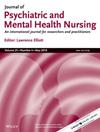The Loss of Autonomy in Eating Disorder Treatment: A Patient Perspective
Abstract
Introduction
In this text, the author’s lived experiences as a youth with anorexia nervosa, anxiety, and depression are explored. Experiences with accessing North American health services, both in specialized eating disorder (ED) and disordered eating (DE) settings, as well as in healthcare more broadly are shared.
Aim
This work seeks to shed light on a patient perspective in mental health and to draw attention to some of the ways that the current framings of EDs and DE within the biomedical system might perpetuate harm.
Methods
In this piece, a collection of the author’s lived-experiences and interactions with the healthcare system are explored.
Findings
The medical framing of EDs as a defect of both mind and body can jeopardize one’s autonomy and contribute to a sense of hopelessness. As mental health treatment increasingly prioritizes evidence-based approaches and standardized practices, there is a growing concern that this shift risks undermining the autonomy of those it aims to support. The dualistic conceptualizations of mental and physical health in ED/DE treatment, at times, can cause harm, particularly for those who do not present with the physical manifestations of an ED/DE but remain largely affected in day-to-day life.
Discussion
The imposition of rigid treatment regimens can inadvertently diminish personal agency, overshadowing the nuanced, individualized needs and preferences of patients. Lived experience narratives encompass the personal, subjective insights of individuals navigating mental health challenges, in turn, providing invaluable insight that conventional methods may overlook.

 求助内容:
求助内容: 应助结果提醒方式:
应助结果提醒方式:


